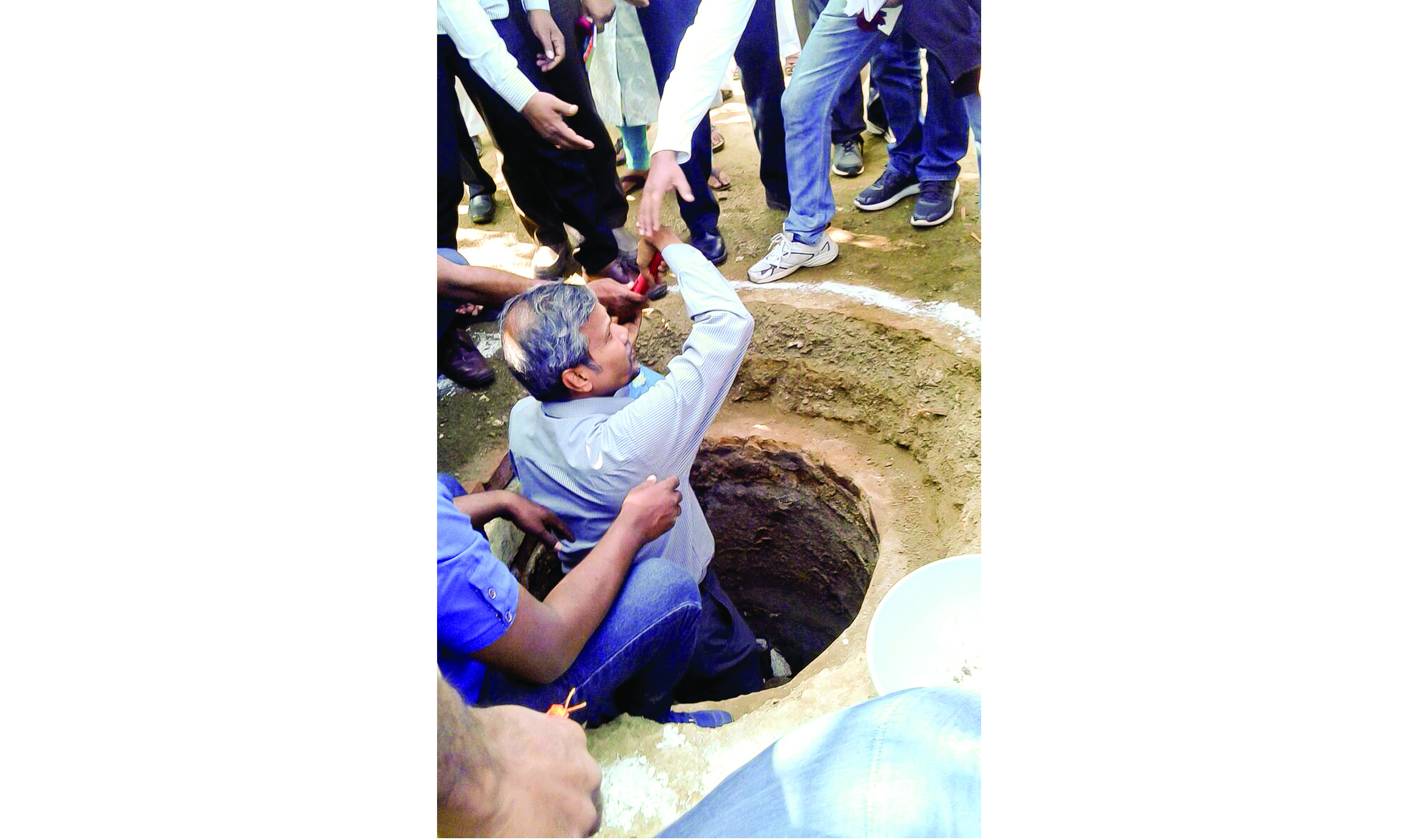As many as 40 senior IAS officers led by Union Drinking Water and Sanitation Secretary Parameshwaran Iyer visited a tiny village, Gangadevarapalli in Warangal (Urban) district in Telangana on Saturday to witness how villagers turned human waste into organic manure that enhanced productivity of crops and reduced cost of fertilisers.
The IAS officials drawn from different departments in Government of India as well as others from different states have been deputed to observe the best rural practices in the country. The top functionaries of UNICEF have coordinated the tour to this village, which has been called as a millennium model village as it has bagged many awards on different social indicators. The village, with about 1,000 households and a population of 4,000, achieved 100% individual toilets in 2003, with a twin pit model. Under this, each house got two pits for toilet and once a pit is filled it is closed and another pit is used. The closed pit is opened after one and a half years and its soil is used as manure in agriculture fields. The impact is manifold—the crop productivity has gone up by 30% and the cost of fertilisers has come down to zero, besides ensuring total sanitation and cleanliness in the village. “The model is very good and we want all the states to develop at least some villages like this which we call ‘Waste to Wealth’,” said Iyar, after wrapping up his visit to the village. Warangal (Urban) district collector Prashant Jeevan Patil told The Sunday Guardian on phone from Warangal, “We would like to replicate this practice in more villages in the district and encourage people to go for it.” Gangadeverapalli achieved total literacy in 2003 and stood first in the district and the state in sanitation, greenery and rural drinking water supply. The village has a record of maintaining zero crime rates.

